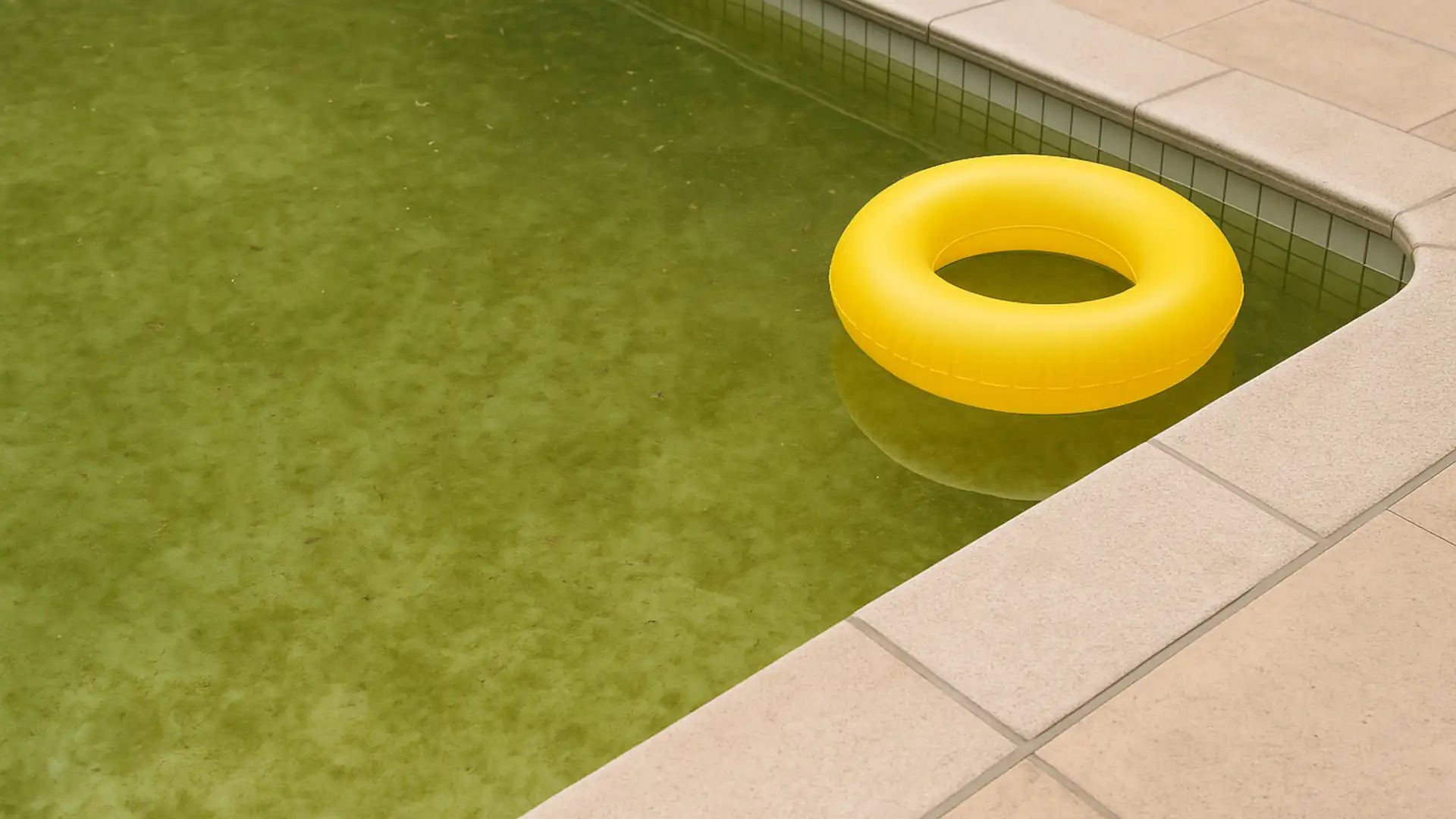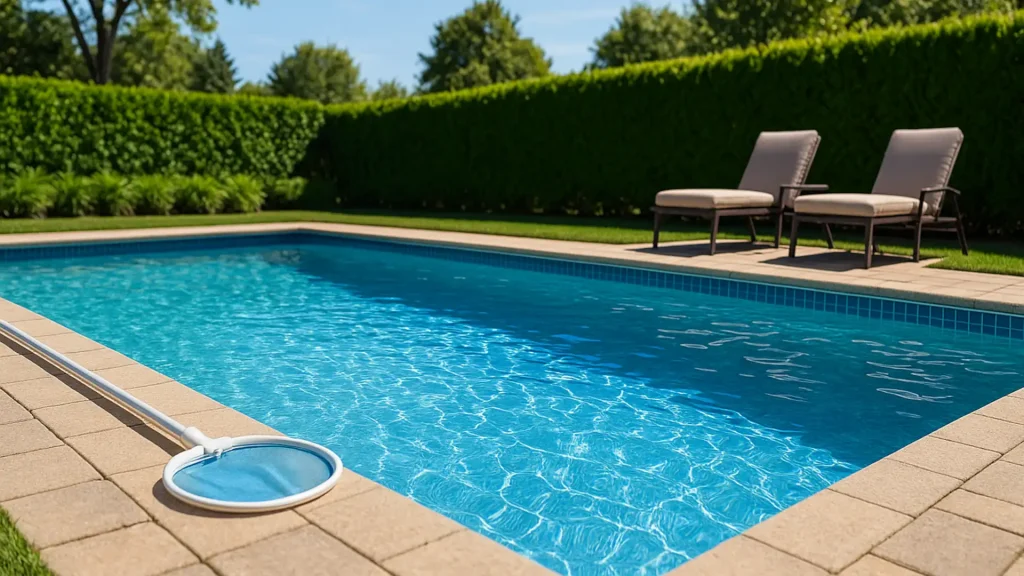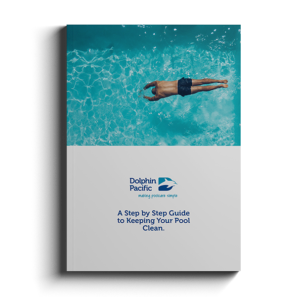
- Categories: Pool Cleaning
What Chemicals Do You Really Need to Keep Your Pool Clean
Murky green water when you’re ready for a swim? Every pool owner’s worst nightmare. The good news? It’s completely preventable with the right swimming pool cleaning chemicals.
Whether you’re new to pool ownership or looking to simplify your maintenance routine, understanding essential pool chemicals is key to crystal-clear water year-round. Let’s cut through the confusion and focus on the swimming pool cleaning chemicals that actually make a difference.
The Role of Pool Chlorine and Other Core Chemicals
Pool chlorine is the superhero of swimming pool cleaning chemicals, and for good reason. This powerful sanitiser works tirelessly to eliminate bacteria, viruses, and algae that can turn your pool into a health hazard. But chlorine doesn’t work alone – it’s part of a chemical dream team that keeps your water safe and inviting.
Chlorine: Your Pool’s Primary Defence
Chlorine comes in several forms, each with its own advantages. Liquid chlorine offers immediate sanitisation, making it perfect for shock treatments when your pool needs a quick fix. Chlorine tablets provide slow, steady sanitisation – ideal for daily maintenance through floating dispensers or automatic chlorinators. Granular chlorine dissolves quickly and works brilliantly for spot treatments or when you need to boost chlorine levels rapidly.
The key is maintaining the right chlorine level – between 1.0 and 3.0 parts per million (ppm) for residential pools. Too little, and harmful bacteria can thrive; too much, and swimmers may experience skin and eye irritation.
pH Balancers and Alkalinity Controllers: Extra Support
While chlorine steals the spotlight, pH balancers and alkalinity controllers play crucial supporting roles. pH increasers (sodium carbonate) and pH decreasers (sodium bisulphate) keep your water’s acidity levels between 7.2 and 7.6 – the sweet spot where chlorine works most effectively.
Total alkalinity stabilisers act as a buffer, preventing dramatic pH swings that can render your other chemicals ineffective. Think of alkalinity as your pool’s shock absorber, keeping everything running smoothly even when external factors try to disrupt the balance.

Understanding Water Balance and Sanitation
Maintaining proper water balance isn’t just about adding swimming pool cleaning chemicals randomly – it’s about understanding how they work together. Your pool water is like a delicate ecosystem where every element affects the others.
The Chemical Triangle: pH, Alkalinity, and Sanitiser
These three components form the foundation of pool chemistry. When pH levels are balanced, your pool chlorine works at peak efficiency, meaning you’ll use less while achieving better results. This balance also protects your pool equipment from corrosion and scaling, potentially saving you thousands in repairs or maintenance work.
Calcium hardness is another crucial factor, particularly in New Zealand’s diverse water conditions. Too little calcium, and your pool becomes aggressive, eating away at surfaces and equipment. Too much, and you’ll notice cloudy water and unsightly scaling on tiles and fittings.
Specialty Chemicals for Specific Challenges
Sometimes your pool needs extra help beyond basic sanitisation. Algaecides prevent and treat algae blooms, particularly important during New Zealand’s humid summer months. Clarifiers help your filtration system capture tiny particles that make water appear dull or hazy. Shock treatments (super-chlorination) eliminate chloramines – those unpleasant chemical odours that actually indicate insufficient, not excessive, chlorine.
Chemical Maintenance Tips for Every Season
New Zealand’s changing seasons demand different approaches to pool chemical maintenance. Understanding these seasonal variations will help you stay ahead of potential problems and keep your pool swim-ready year-round.
Summer: Peak Season Vigilance
During the warmer months from December to March, your pool works overtime. Higher temperatures accelerate chemical consumption, whilst increased bather loads introduce more contaminants. Test your water at least twice weekly, and don’t be surprised if you need to add swimming pool cleaning chemicals more frequently.
Warmer weather also accelerates algae growth, so maintaining proper chlorine levels becomes absolutely critical. Consider using stabilised chlorine to prevent UV rays from breaking down your sanitiser too quickly.
Autumn and Spring: Transition Periods
These shoulder seasons require careful attention as changing temperatures and occasional heavy rainfall can upset your water balance. Autumn leaves and spring pollen introduce organic matter that consumes chlorine, so stay vigilant with testing and adjusting chemical levels accordingly.
Winter: Maintenance Mode
Even if you’re not swimming, your pool still needs chemical attention. Reduced circulation and colder temperatures slow down chemical reactions, but algae and bacteria don’t completely disappear. Maintain lower but consistent sanitiser levels and check your water balance monthly at minimum.
Keep Your Pool Perfect Year-Round
Mastering swimming pool cleaning chemicals isn’t rocket science, but it does require consistency and quality products. The difference between a mediocre pool and a spectacular one often comes down to using premium pool chemicals and maintaining proper balance.
Ready to transform your pool maintenance routine? The expert team at Dolphin Pacific understands Kiwi pool conditions and can help you choose the perfect chemical combination for your specific needs. Don’t let chemical confusion keep you from enjoying your pool. Explore our comprehensive range of swimming pool cleaning chemicals today, and discover why we’re New Zealand’s leading pool supplies distributor.
Tag

Hey! I'm Adrian, founder and pool expert here at Dolphin Pacific. I love spending time with family, fishing, and have been known to brew my own beer.


